For 50 years, IFDC has collaborated with passionate experts and organizations to improve soil health and agricultural practices around the world. We’re celebrating this milestone anniversary in 2024—not by looking backwards, but by looking toward the future and asking, “What can we do?”
Please join us from 9am to 5pm on June 4 in Washington, D.C., to chart a bold course for unified action at an all-day symposium, “Future Proofing: Unified Action for Soil Health and Food Security.” Join experts from across the food systems spectrum to brainstorm the next steps for a more secure future.
To ensure we can accommodate all attendees, we kindly ask you to RSVP by completing the form below. The location of the symposium will be included in your confirmation email.
Can’t attend the Symposium in person? Join us virtually! Register here to attend online: Virtual Registration for IFDC’s Symposium, “Future Proofing: Unified Action for Soil Health and Food Security.”
Due to space limitations, admittance to the symposium will be limited to attendees receiving an invitation directly from IFDC and authorized designees. Please be advised that IFDC cannot guarantee entrance to any other individuals.
This event is closed to the press.
Fireside Chat Guest of Honor
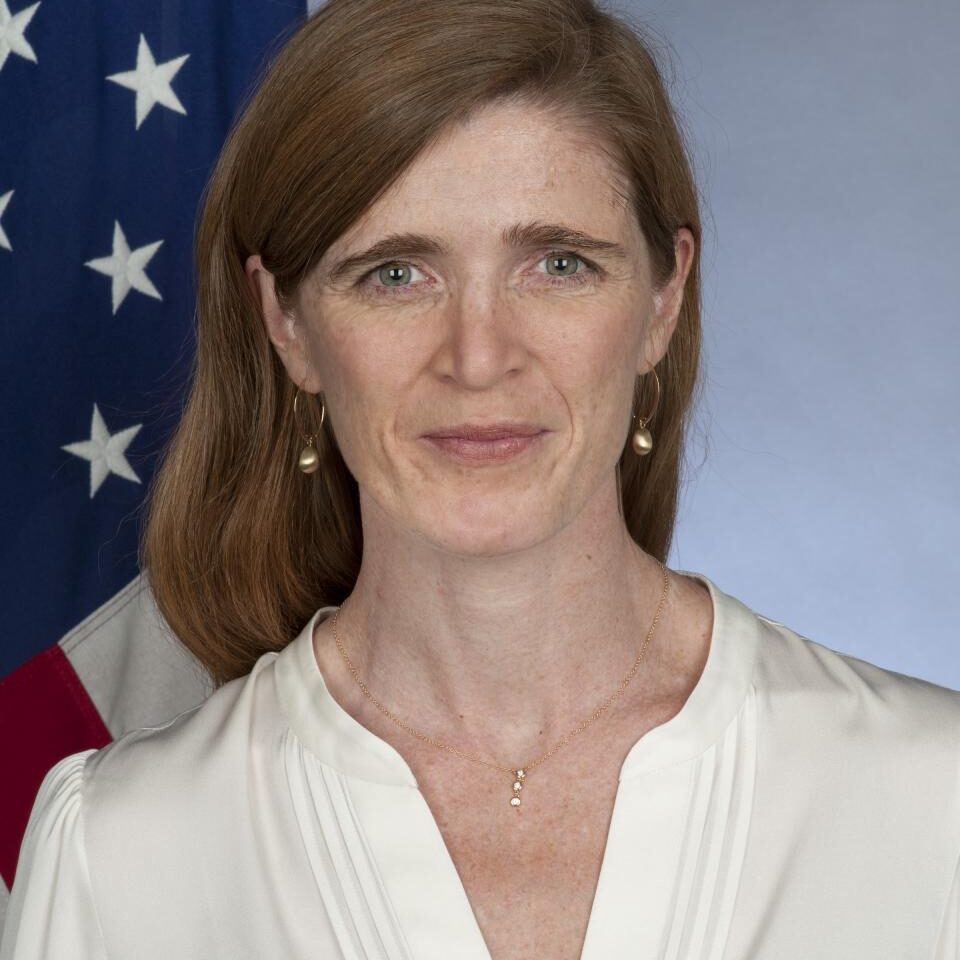
Samantha Power
USAID
Samantha Power is the 19th Administrator of USAID, the world’s largest bilateral development agency with a global staff of over 11,000 across more than 100 countries.
Full Bio
As USAID Administrator, Power has led the Agency in prioritizing efforts to address some of the world’s greatest development and humanitarian challenges, including climate change, the global food crisis, emerging threats to global health, and rising threats to democracy and civil society. Power has also focused on advancing a series of reforms aimed at making USAID’s work more inclusive and effective, and at extending the Agency’s impact beyond its foreign assistance programs. Since 2021, USAID has taken a range of steps to significantly expand partnerships with local organizations, mobilize powerful new investments from nontraditional partners in the private sector, and better attract and retain talent that reflects the best of America. Additionally, Power is the first USAID Administrator to serve as a member of the National Security Council.
Prior to joining the Biden-Harris Administration, Power served as the 28th U.S. Permanent Representative to the United Nations from 2013 to 2017 under President Obama. During her tenure at the UN, she rallied countries to combat the Ebola epidemic and ratify the Paris climate agreement, worked to negotiate and implement the ambitious Sustainable Development Goals, and helped catalyze bold international commitments to better support refugees.
From 2009 to 2013, Power served on the National Security Council staff as Special Assistant to the President and Senior Director for Multilateral Affairs and Human Rights, where she advised President Obama on issues such as supporting democratic governance, UN reform, LGBTQI+ and women’s rights, atrocity prevention, and efforts to combat human trafficking and corruption.
An immigrant from Ireland, Power began her career as a war correspondent in Bosnia, and went on to report from countries including Kosovo, Rwanda, Sudan, and Zimbabwe. She was the founding executive director of the Carr Center for Human Rights Policy at the Harvard Kennedy School, and from 2017 to 2021 was the Anna Lindh Professor of the Practice of Global Leadership and Public Policy at Harvard Kennedy School and the William D. Zabel Professor of Practice in Human Rights at Harvard Law School. Power is an author and editor of multiple books, and the recipient of the 2003 Pulitzer Prize for Nonfiction.
She holds a B.A. from Yale University and a J.D. from Harvard Law School.
Afternoon Keynote Speaker
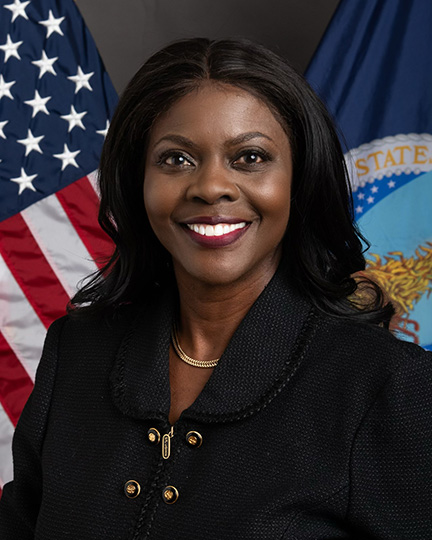
Dr. Chavonda Jacobs-Young
USDA
Dr. Chavonda Jacobs-Young serves as the Under Secretary for Research, Education, and Economics (REE), and as USDA’s Chief Scientist.
Full Bio
As Chief Scientist, Dr. Chavonda Jacobs-Young advises the Secretary of Agriculture and other senior officials on scientific matters and chairs the USDA Science Council, which convenes all parts of USDA’s scientific enterprise.
Prior to being appointed by President Biden to serve as the REE Under Secretary, Dr. Jacobs-Young was Administrator for ARS from 2014 to 2022. Before that role, she served as ARS Associate Administrator for National Programs, leading the research objectives of the entire Agency. She also led the Office of International Research Programs, which is responsible for ARS’ liaison with its international partners.
From 2009 to 2012, Dr. Jacobs-Young served as the inaugural OCS Director, where she was responsible for facilitating the coordination of scientific leadership across the Department to ensure that research supported by, and scientific advice provided to, the Department and external stakeholders were held to the highest standards of intellectual rigor and scientific integrity. She has also served as the Acting Director for NIFA and as a senior policy analyst for agriculture in the White House Office of Science and Technology Policy.
Dr. Jacobs-Young is a native of Georgia. She holds M.S. and Ph.D. degrees in Wood and Paper Science and a B.S. degree in Pulp and Paper Science and Technology from North Carolina State University. She is a graduate of American University’s Key Executive Leadership in Public Policy Implementation Program, and a proud fellow of both the American Association for the Advancement of Science and the National Academy of Public Administration.
Panelists
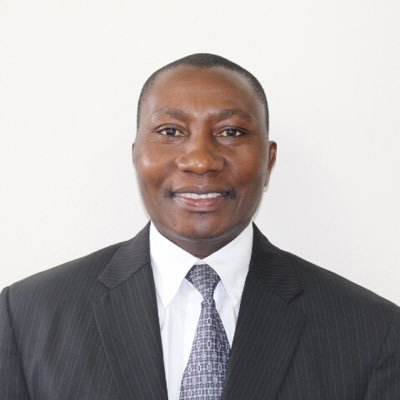
Dr. Godfrey Bahiigwa
African Union
Full Bio
Dr. Godfrey Bahiigwa is the Director of the Department of Rural Economy and Agriculture of the African Union (AU) Commission. He works with AU Member States, Regional Economic Communities, and other partners to boost rural economic and agricultural sector development by supporting the adoption of strategies, policies, and programs.
Before joining the AU, he was the Head of the International Food Policy Research Institute’s Eastern and Southern Africa Office in Addis Ababa. He was the founding coordinator of Regional Strategic Analysis and Knowledge Support System node for Eastern and Central Africa. Dr. Bahiigwa also held key positions relating to agricultural research and policy in his country, Uganda.
Dr. Bahiigwa holds a PhD in Agricultural Economics from the University of Missouri-Columbia (USA), a Master’s degree in Agricultural and Applied Economics from the University of Minnesota (USA), and a Bachelor’s degree in Agriculture from Makerere University (Uganda).
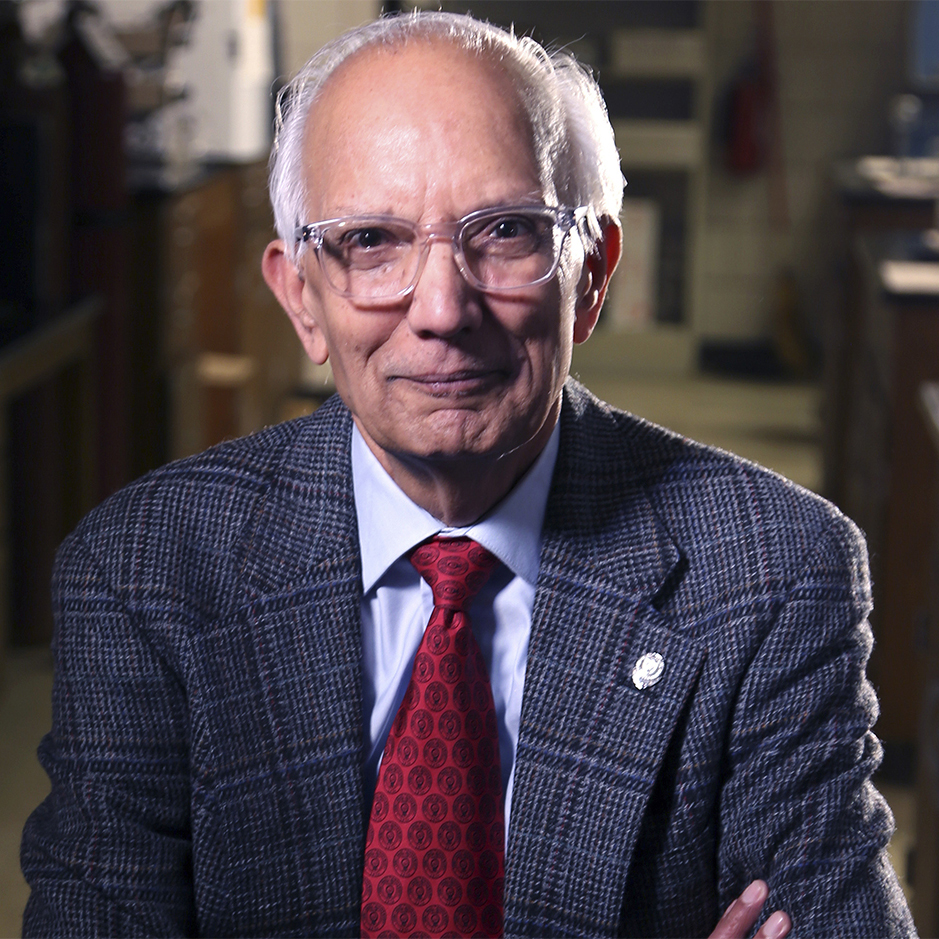
Dr. Rattan Lal
Ohio State University
Full Bio
Rattan Lal, Ph.D., is a Distinguished University Professor and Director of the CFAES Rattan Lal Center for Carbon Management and Sequestration at The Ohio State University, where he has been since 1987. He was soil physicist at IITA, Ibadan, Nigeria from 1969 to 1987, and Sr. Research Fellow at the University of Sydney, Australia in1968. Prof. Lal was President of the Soil Science Society of America (2006-2008) and of the International Union of Soil Sciences (2017-2018). He researches soil carbon sequestration, conservation agriculture, soil health, and land use and soil management effects on physical processes and properties of soils of the tropics. With an h-index of 191 and 157,465 citations, Dr. Lal has authored over 1,130 journal articles, over 577 book chapters, authored/edited 105 books, mentored 410 researchers, and was ranked #1 globally in soil and agronomy by Res. Com in 2023. He is laureate of the 2018 GCHERA World Agriculture Prize, 2018 Glinka World Soil Prize, 2019 Japan Prize, 2019 U.S. Awasthi IFFCO Award, 2020 IICA Chair in Soil Science and Goodwill Ambassador, 2020 Arrell Global Food Innovation Award, 2020 World Food Prize, and 2021 Padma Shri Award of India. He has sponsored the Dr. Rattan Lal Endowed Professorship in soil science at the Ohio State University.
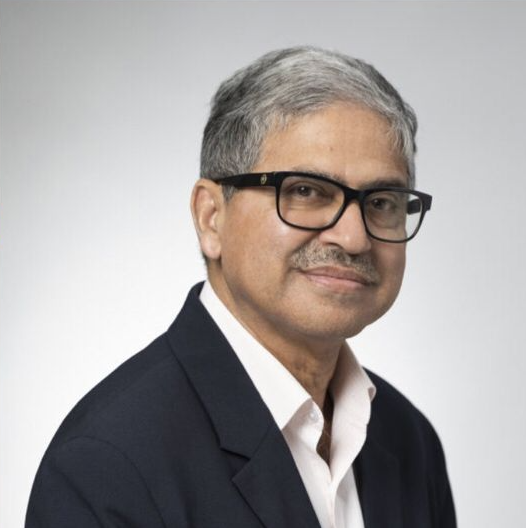
Parmesh Shah
World Bank
Full Bio
Parmesh Shah is the Global Lead for Rural Livelihoods and Agricultural Jobs at the World Bank. Shah provides leadership to the World Bank’s work and supports the development of global knowledge and learning in these areas to offer solutions to clients and other development partners. He also leads the rural livelihood and development cluster in South Asia region of the World Bank and is involved in designing and supporting a number of rural poverty reduction and inclusive growth programs in the region. His current areas of interest are economic and social organizations and networks of the poor, making markets and public services work for the poor, social entrepreneurship, ICT-based innovations in agriculture and rural development, promotion of on farm and off farm jobs and public private and people partnerships for rural poverty reduction.
Parmesh worked as Coordinator of the Bank wide Community of Practice on “Participation.” He supported the development of operational knowledge and learning across the Bank group on community driven development, community participation, participation in the development of country-owned poverty reduction strategies, and social accountability mechanisms.
Before joining the World Bank, Parmesh worked for governments, civil society organizations, foundations, and other bilateral and multilateral development organizations in Asia and Africa regions in the areas of community-driven development, participatory approaches, institutional change, and natural resources management.
He holds a Doctor of Philosophy (PhD) in Development Studies from the Institute of Development Studies at the University of Sussex, an MBA from the Indian Institute of Management, Ahmedabad, and a B Tech degree in Agricultural Engineering from Pantnagar in India.
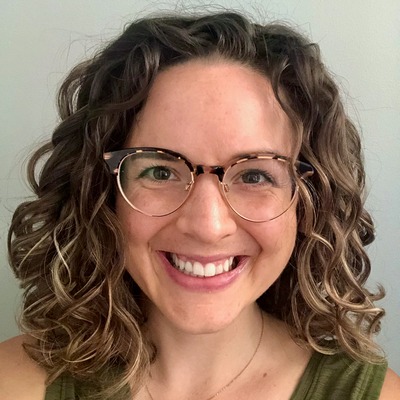
Teresa Welsh
Bloom Global Communications
Full Bio
After a career in journalism spanning more than 15 years, Teresa founded bloom global communications to deliver results to those at the forefront of food systems transformation.
Teresa has on-the-ground reporting experience from 15 countries around the world, providing her vital insight into challenges facing smallholder farmers and producers — and the hurdles we must overcome to build a sustainable food system for people and planet. She’s intimately familiar with institutions actively engaged in transforming the food system across the value chain, and how they must all do their part to move change forward.
She is the creator and founding author of Dish, a food systems newsletter, where she built a global brand known for its unique voice and insider coverage to bring professionals what they need to know each week to maximize their impact.
bloom global communications offers a wide range of specialized content services, including impact stories, white papers, opinion pieces, press releases, and website copy. Teresa leverages her vast events experience conceptualizing key messages and providing professional moderation to deliver curated event content services for organizations looking to take their impact off the page and onto the stage.
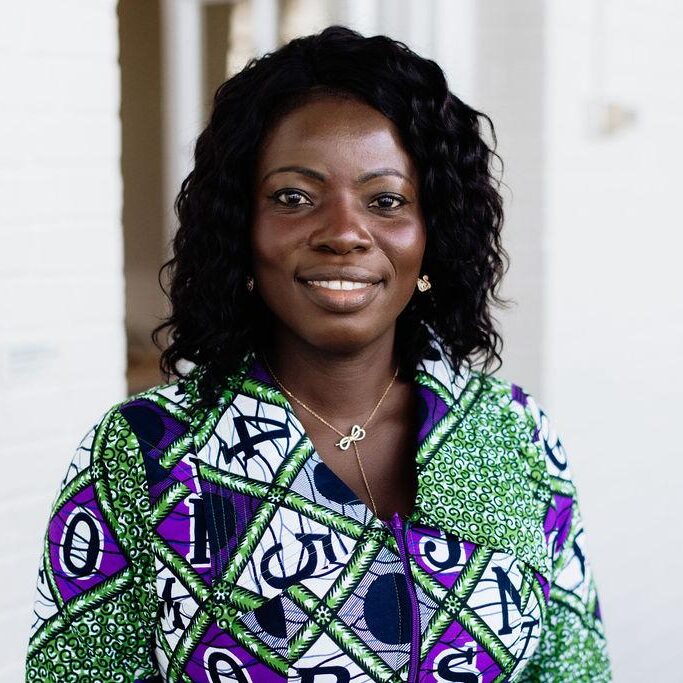
Edith Wheatland
Rockland Farms Limited
Full Bio
Edith Akosah Wheatland, CEO of a successful integrated poultry company in Ghana, is well known for her support of women, her advocacy for youth empowerment, as well as people living with disabilities, and her commitment to taking concrete steps through her livelihood programs to ensure that rural children have access to good nutrition in school. Her enterprise consists of a poultry farm with 100,000 chickens, a processing facility and commercial feed milling companies. Edith is Ghana’s 2023 National Best Female Farmer. She also is co-awardee of the Feed the Future Accelerating Women Entrepreneurs (AWE) Prize for promising business ventures in 2018.
Her company’s newest product line – Akoko Tasty, is currently Ghana’s most popular packaged, locally produced, pre-cut chicken. Rockland Meat’s processing capacity currently stands at 12,000 birds per week, employing more than 100 rural youth and women in addition to several hundreds more along the production chain. The company’s well-packaged chicken brand, Akoko Tasty, is leading the way in making locally produced chicken more commercially viable through innovative thinking, and constant improvements, offering the local chicken market the leverage it needs to expand sustainably.
Edith travelled from Ghana as a youth to work in the United Kingdom, before relocating to the United States to assist her uncle run his business in Rockland County, New York, which is where her company’s name ‘Rockland Farms’ emerged. In 2013 however, she returned to Ghana to start her ambition of raising chicken for processing. Today, she mobilizes more than 200,000 output capacity with the help of her outgrowers.
Along with her success came economic opportunities for other actors along the value chain, especially for women and youth who are central to her company’s operations. Almost all the over 8,000 smallholder maize farmers that work in the supply chain of Rockland Farms as outgrowers are females. The company provides them with ready markets, training support, and advice that help them grow their businesses. Currently, about 200 outgrower groups within the supply chain also operate Village Savings and Loans Groups, (VSLA) contributing more than GH¢ 2 million annually and lending among themselves to improve their livelihoods and expand their businesses.
About 3,000 young people are also empowered through employment and entrepreneurial avenues by the company at different levels, primarily in the marketing and processing of chicken as well as provision of value chain services such as land preparation and soil health. Women lead the
company’s Micro-Vendor Scheme in making chicken products available in the rural areas and small towns.
Edith’s company is deepening impact in its operational communities through Community Livelihood Programs which regularly support selected schools with trays of eggs to boost school nutrition and health, as well as enhance government’s school feeding program. The initiative is also empowering women maize farmers with backyard poultry farming as alternative means of livelihood for them during the lean seasons. So far, close to 30 women and youth have received support in forms of inputs, equipment, training, and ready market. This is helping Rockland Farms to create a legacy of impact at the community level.
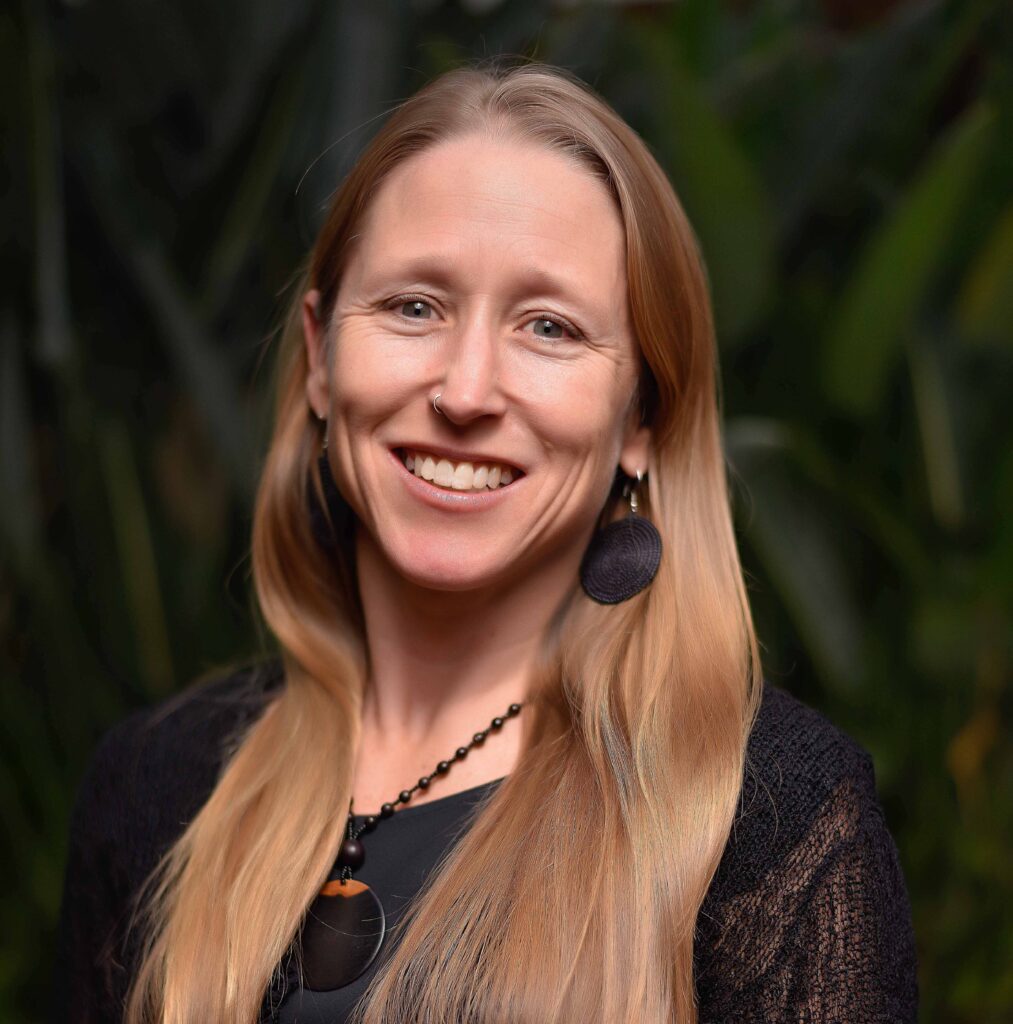
Dr. Leigh Ann Winowiecki
CIFOR-ICRAF
Full Bio
Dr. Leigh Ann Winowiecki joined the IFDC Board of Directors in 2023. She serves as a founding Board Member of the International Union of Agroforestry (IUAF) and is the Global Research Lead for Soil and Land Health at CIFOR-ICRAF, based in Nairobi, Kenya. Dr. Winowiecki co-founded the Coalition of Action 4 Soil Health (CA4SH), which aims to catalyze investments in soil health for human well-being and climate. She serves on the Scientific Task Force and the Monitoring Task Force for the UN Decade on Ecosystem Restoration as well as the Scientific Steering Committee for the Global Soil Health Programme, in addition to co-leading the Landscape Restoration Transformative Partnership Platform.
Since 2009 she has co-developed and implemented the Land Degradation Surveillance Framework (LDSF) in over 40 countries across the tropics to assess soil health, land degradation, and vegetation dynamics and to track soil restoration efforts. As a soil scientist, Dr. Winowiecki’s research focuses on farmer-centered landscape restoration, drivers of soil degradation, and land management for soil health. She has published widely on her research, including open-access datasets. Dr. Winowiecki earned her doctorates from the Tropical Agricultural Research and Higher Education Center in Costa Rica (CATIE) in Tropical Agroforestry and in Soil Pedology from the University of Idaho. She was a postdoctoral fellow at Columbia University – Earth Institute.
Thanks to the Symposium Breakout Session Leaders: The Global Agricultural Productivity Initiative at Virginia Tech University, the Fertilizer Institute, the International Food Policy Research Institute, the Alliance for African Partnership at Michigan State University, Kansas State University, and the World Bank.
